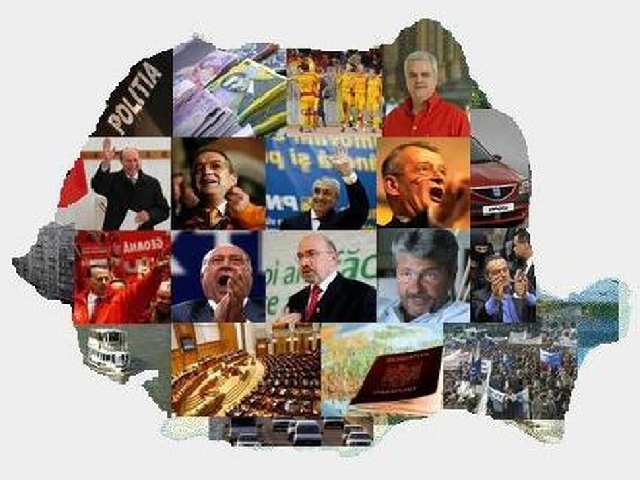The Year 2016 in Review

Bogdan Matei, 07.01.2017, 16:30
A new Government in Romania
The President of the Timis County Council and former Social-Democrat MP Sorin Grindeanu was nominated for the position of Prime Minister. President Klaus Iohannis accepted the proposal, after previously rejecting the nomination of former Development Minister Sevil Shhaideh. Shhaideh had been the first option of Social-Democrat leader Liviu Dragnea. If accepted, Shhaideh would have been the first female Prime Minister of Romania as well as the countrys first Muslim Prime Minister. Resting on a comfortable majority in Parliament, where the Social-Democrats and their coalition partners, the Alliance of Liberals and Democrats, are holding the majority, Grindeanus Cabinet marks the return to power of the Social-Democratic Party, following a year of technocratic rule under the leadership of Dacian Ciolos. We recall that Dacian Cioloss Cabinet was sworn in in November 2015, in the wake of mass anti-corruption protests against the Government led by Victor Ponta.
The Social-Democratic Party scores landslide win in parliamentary elections
The Social-Democratic Party and the Alliance of Liberals and Democrats also won the leadership of the new Parliament after winning the December 11 elections by a wide margin. Liviu Dragnea was appointed Speaker of the Chamber of Deputies while the co-president of the Alliance of Liberals and Democrats Calin Popescu-Tariceanu secured a new term as Senate Speaker, which is virtually the second-most powerful position in the state. The Social Democrats grabbed over 45% of the votes, while the Liberals grabbed only 25% of the votes, which prompted the resignation of Liberal leader Alina Gorghiu. Six months since its inception, the Save Romania Union, an NGO turned into a political party, became the third party to enter Parliament after securing 9% of the vote. Another three parties managed to get the minimum number of votes to enter Parliament: the Alliance of Liberals and Democrats, the Democratic Union of Ethnic Hungarians in Romania, which announced its support for the Grindeanu Cabinet, without getting any ministry portfolios, and the Peoples Movement Party led by former President Traian Basescu. Less than 40% of Romanians cast their votes to elect the 465 MPs of the new Parliament. The December 11 elections also marked a return to the old party-list voting proportional representation, replacing the 2012 first-past-the-post voting system, which resulted in an overinflated Parliament with 586 MPs.
First female Mayor of Bucharest
On June 5, Bucharesters elected the citys first female Mayor, Social-Democrat Gabriela Vranceanu-Firea, who entered politics 4 years ago. A former controversial journalist, Firea grabbed 41% of the vote in a city traditionally controlled by right-wing parties. The voter turnout was very low in Bucharest, standing at 33%, way below the national average of 48%. The local elections were held in a single ballot, the winner being the candidate who grabbed the largest number of votes. The system was criticized by civil society and the media, who have called the mayors legitimacy into question against the backdrop of a low voter turnout.
Romanian diplomacy in 2016
Romanias foreign policy in 2016 observed the same guidelines, both in respect to NATO and the European Union, and Russia. Former Foreign Minister Lazar Comanescu constantly underlined the importance of a “substantial trans-Atlantic relation and pleaded for strengthening NATOs eastern flank. On the other hand, pragmatism dominated relations with Russia. Romania supported the economic and diplomatic sanctions imposed on Moscow by the European Union and NATO.
A new president for Moldova
With respect to the Republic of Moldova, in 2016 Romania continued to support the reform process in this country, with a view to consolidating Moldovas European track. The excellent bilateral relations between the two countries, also owing to the pro-Romanian sympathies of President Nicolae Timofti, as well as the setup of a pro-Western ruling coalition and Parliament majority, now risk crumbling with the election of pro-Russian Socialist Igor Dodon. After the election, president Klaus Iohannis merely said he had taken under advisement the Moldovan citizens vote. The presidencys press release makes no mention to Dodon, a critical opponent of Romania. Iohannis refers to him as “the new president of the Republic of Moldova, who must display wisdom and balance during his term in office.
A disappointing year for Romanian sports
2016 was a lackluster year for Romanian sports. In August, at the Rio Olympics in Brazil, Romania grabbed only five medals: one gold, two silver and three bronze. To make matters worse, weightlifter Gabriel Sincraian lost his bronze medal after failing a doping test. Romania ranked 47th in the medal standings, the lowest position since 1952. In June, at the European Football Championship in France, Romania was bottom-of-the-tables in Group A. Subsequently coach Anghel Iordanescu was replaced by German Cristoph Daum, the first foreign coach in the history of Romanias national squad. However the performance and results of our footballers did not improve much with the first matches in the preliminaries to the 2018 World Cup in Russia. In handball, although seen as medal favorites, Romania ranked 5th at the European Championships in Sweden. In tennis, Romanias best-seeded player, Simona Halep, ranked 4th at the end of the competitive season.




























